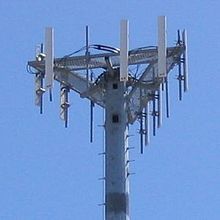US carrier Sprint Nextel has activated its LTE service across 15 cities in the US, including Atlanta, Dallas and Houston.
July 18, 2012

US carrier Sprint Nextel has activated its LTE service across 15 cities in the US, including Atlanta, Dallas and Houston.
The move is the latest step in Sprint’s ambitious Network Vision programme that involves updating and streamlining its network infrastructure, and enables it to begin to compete with its two national rivals Verizon and AT&T, which have already made big inroads into deploying LTE across North America.
“Sprint and our vendors have been deploying Network Vision sites all across the country for the last several months and we are thrilled to deliver our new network to our customers today in and around Atlanta, Dallas, Houston, Kansas City, San Antonio and Waco,” said Bob Azzi, senior vice president-Network, Sprint, in a statement. “This new network is performing extremely well and customers should find it consistent, reliable and really fast.”
Sprint has a complex network consisting of CDMA2000, iDEN, WiMAX and LTE. The company is currently in the process of taking down its iDEN network and is looking to refarm the 800MHz spectrum for use with LTE.
However, at launch Sprint has 5MHZ of 1900MHz to play with, which places it at a theoretical disadvantage to its larger rivals for both bandwidth and in-building penetration. Nevertheless, Sprint is maintaining its unlimited data policy in a bid to differentiate itself from its competitors and maintain its appeal to its customers.
Explaining its logic for bucking the industry trend in this regard, Sprint CTO Stephen Bye told Telecoms.com in a recent interview that: “A lot of operators are focused on the network cost, but one needs to look at the overall end-to-end cost: what is the service related cost, how many calls are coming in to customer care teams? So we look at the end-to-end business model and we continue to believe that unlimited is the best value proposition for our customers. It provides the best experience, and that’s something we continue to support.”
Mike Roberts, principal analyst for the Americas at Informa said that continuing unlimited data would only be an issue for Sprint in the medium to long term, rather than in the short term. “It’s the classic thing that when you launch a service it’s basically empty and you’ve got plenty of room for the subscribers to come on board and use the service,” Roberts said. “But in the medium to long term they actually have more spectrum over the competitors due to its holdings at 2.6GHz, so they have a plan to bring that into play via their relationship with Clearwire.”
According to Roberts though Sprint really has no choice but to continue with unlimited data, but is looking to cope with it via new pricing models. “The truth of it is that they are offering unlimited data because they feel like they have to. They are in a market that’s dominated by operators twice their size so they need some differentiation. They are very reluctant to give it up. They have been nibbling away at it though and they have added a fee for smartphone customers that could effectively be seen as a charge for more data usage. They are making unlimited more bearable by a number of moves like this.”
In independent tests, one US site saw average download speeds of between 9Mbps and 13Mbps from the network and upload speed of 2.19Mbps. However, this was on an unloaded network, so it remains to be seen how Sprint can compete with its rivals once customers start to use the network.
To support the launch Sprint has five LTE capable devices available for its network: the LG viper, the Samsung Galaxy Nexus, the Samsung Galaxy III, the HTC EVO and the Sierra Wireless 4G Tri-Fi hotspot device.
Sprint said that it plans to launch additional 4G LTE markets in the second half of 2012 and expect to offer nationwide coverage by the end of 2013.
The full list of launch cities are:
• Atlanta
• Athens, Ga.
• Calhoun, Ga.
• Carrollton, Ga.
• Newnan, Ga.
• Rome, Ga.
• Dallas
• Fort Worth, Texas
• Granbury-Hood County, Texas
• Houston
• Huntsville, Texas
• San Antonio, Texas
• Waco, Texas
• Kansas City, Mo.-Kan.
• St. Joseph, Mo.
The LTE North America conference is taking place on the 14-15th November 2012 at the Fairmont Dallas Hotel, Texas. Click here to register your interest.
About the Author(s)
You May Also Like








.png?width=300&auto=webp&quality=80&disable=upscale)


_1.jpg?width=300&auto=webp&quality=80&disable=upscale)


.png?width=800&auto=webp&quality=80&disable=upscale)